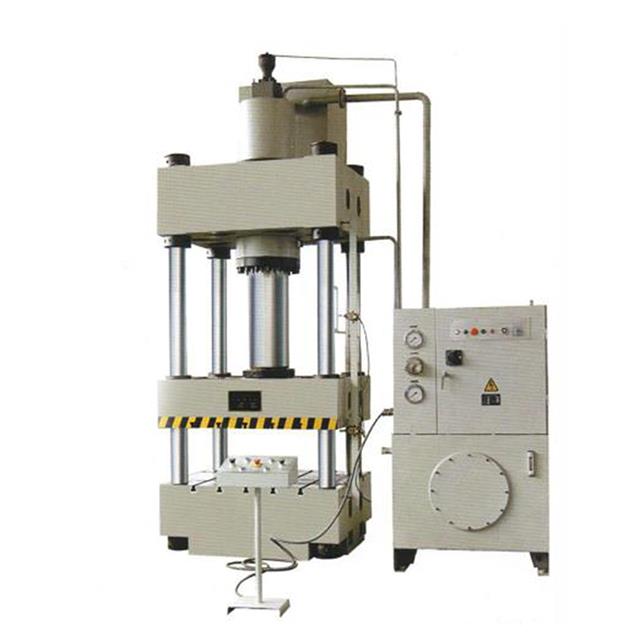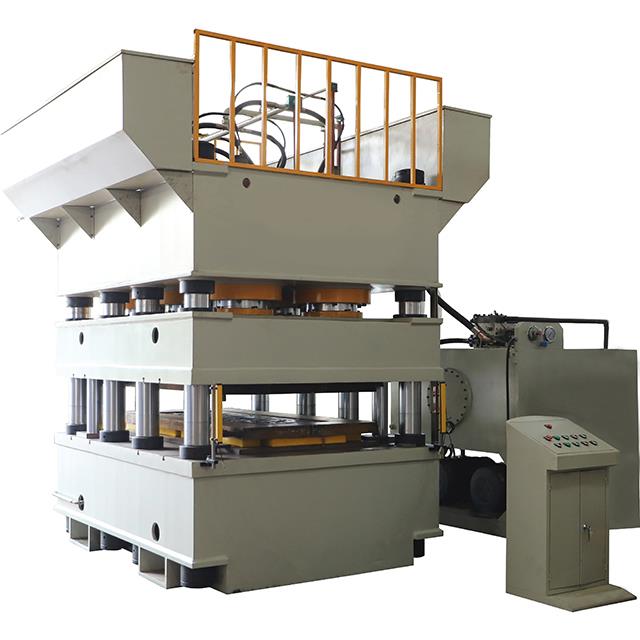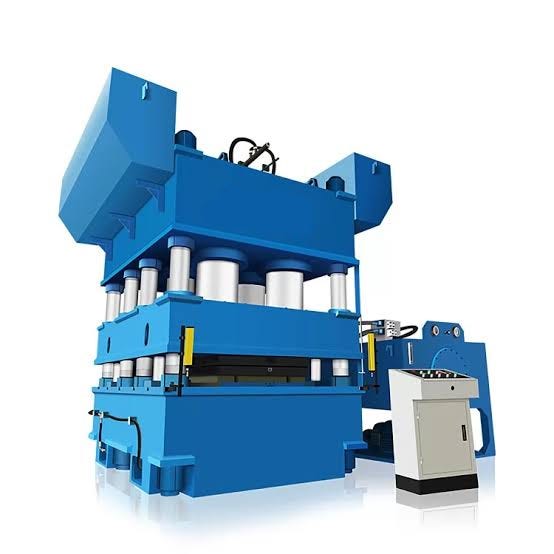Hydraulic Press Machines: Components, Principles, Advantages, Applications, and Choosing a Partner
Release Time : 2024-07-02 View Count : 次A hydraulic press machine is a powerful tool used in various industries to shape, compress, and form materials by applying significant force. It operates based on Pascal's Law, using hydraulic fluid to transmit pressure evenly throughout the system. This process allows the machine to perform tasks such as bending, punching, and molding with high precision and efficiency. The versatility, reliability, and ability to generate high force with minimal input make hydraulic presses essential in manufacturing, metalworking, automotive, aerospace, and many other sectors.

MC
Components of a Hydraulic Press Machine
A hydraulic press machine comprises several essential components working together to create and apply force. Hydraulic fluid, typically a specialized oil, is vital for transmitting pressure throughout the system. This fluid resides in a reservoir until needed, with a pump responsible for generating pressure and moving the fluid into the cylinder. Within the cylinder, a piston moves under hydraulic fluid pressure, interacting directly with materials to convert hydraulic energy into mechanical energy. Valves regulate fluid flow, ensuring precise control over piston speed and force.

MC
Working Principle
The operation of a hydraulic press is grounded in Pascal's Law, which states that pressure applied to a confined fluid is transmitted equally in all directions. This allows hydraulic presses to generate significant force with minimal input energy. When the hydraulic pump is activated, it pushes hydraulic fluid from the reservoir into the cylinder, applying pressure on the piston. This pressure is uniformly distributed, resulting in a consistent and powerful force.
The piston converts hydraulic energy into mechanical energy, enabling the press to compress, bend, punch, or shape materials. The system's valves control the piston's force and movement by regulating the fluid's direction and flow rate, ensuring precise operations. For instance, during a metal bending operation, the valves adjust to control the piston's speed and force, ensuring a consistent bend.
After the operation, the control valves release the hydraulic fluid back into the reservoir, relieving the pressure and allowing the piston to return to its initial position. This efficient process makes hydraulic presses ideal for various industrial applications, providing uniform pressure, precise control, and reliability.

MC
Example Operation
In practical terms, material placed on the press's lower plate awaits hydraulic pump activation, which moves fluid into the cylinder to exert downward force via the piston. Valve adjustments dictate force application, enabling precise material shaping. Post-operation, fluid release readies the piston for subsequent cycles, ensuring efficient and accurate processes across industrial applications.

MC
Advantages of Hydraulic Press Machines
Hydraulic presses offer uniform pressure application for precise, high-quality outcomes, alongside high force generation using minimal energy input, enhancing cost-efficiency. Their versatility spans molding, forging, punching, and cutting applications across diverse industries, from automotive to aerospace. Operators benefit from exact force and movement control, ensuring adherence to precise manufacturing specifications.

MC
Applications
Hydraulic presses are vital in numerous industries due to their versatility and precision. In metalworking, they shape and form components through bending, punching, deep drawing, and stamping, crucial for automotive parts, appliances, and construction materials. In the automotive industry, they manufacture and assemble vehicle parts, ensuring high safety and quality standards. The plastic and rubber industry uses hydraulic presses for molding operations, creating precise and complex shapes.
Aerospace relies on them for forming lightweight, strong aircraft components, demanding high precision and reliability. Electronics manufacturing benefits from hydraulic presses for producing small, precise components like connectors and switches. In construction, they produce dense, durable materials such as bricks and tiles. The food and beverage sector uses hydraulic presses for extracting juices and oils, maintaining product quality. The medical industry employs them for making implants, surgical instruments, and prosthetics, requiring precision and reliability.
Lastly, the recycling industry uses hydraulic presses to compact waste materials, enhancing recycling efficiency. Overall, their ability to provide consistent pressure, precise control, and handle diverse materials makes hydraulic presses essential in various manufacturing processes.




MC
Why Choose Us
Choosing us ensures access to high-quality hydraulic press machines crafted from premium materials, delivering durability and peak performance in metal forming and plastic molding. Our tailored solutions, complemented by comprehensive services such as installation, training, and maintenance, guarantee precise operation alignment with your unique requirements. We continually innovate with cutting-edge technologies, boosting productivity while maintaining competitive pricing for exceptional value. With a strong track record in reliability and customer satisfaction, we are your trusted partner for efficient and effective manufacturing operations.

MC
Contact Us
For more information on our hydraulic press machines or to discuss your specific requirements, please contact us:
Mr. Liu
Phone: 8613322202758
QQ: 605712576
Email: liu@mingchenggroup.com
website: www.weldingcut.com
Address: 20 Gangwan Street, Zhongshan District, Dalian City, Liaoning Province, China











